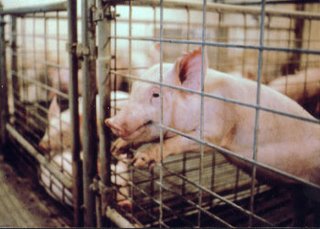Mr. Aroune's Economics
Tuesday, September 12, 2006
Monday, September 11, 2006
The Puzzling Economics of the World of Sports

Societies Values and Norms and
the Laws of Supply and Demand:
Students are asked to read the following blog and complete the assignment.
Allen R. Sanderson, associate chair of the Department of Economics at the University of Chicago, teaches a course on the economics of sports and does research on competitive balance, sports labor markets, and economic impact analyses.
In the following article, Mr. Sanderson begins to ask the question, why are professional athletes vilified about their salaries, when many other industries make much more?
http://www.econlib.org/library/Columns/y2004/Sandersonsports.html
Assignment: In a blog, no less than 400 words, give your opinion as to the questions brought about by Mr. Sanderson. Take into consideration the concepts and and ideas of economics previously discussed in class and the importance of understanding human behavior.
Assignment 1
 Assignment 1:
Assignment 1: The following letter was received by the U.S. Department of Agriculture April 1, 1982. Read the letter and answer the questions on your blog, using complete sentences.
Dear Sirs,
My wife Molly and I are interested in getting into the "NOT RAISING HOGS" business. Out next door neighbor Horace Buntley has been raising hogs for the past 25 years and the most he ever made was $11,000. Last year he said you fellas paid him $15,000 not to raise hogs. Now this sounds like a pretty good deal to me so Molly said I should write you people and find out how to get stated not raising hogs.
First off, are there any particular type hogs you fellas preferred we didn't raise. Not that it matters to us much, but we would prefer not to raise razorbacks (ornery little suckers) but if you people in Washington would rather we didn't raise Blues or Poland Chinas that's O.K. with us. Now we thought we would start on a small scale by not raising 10,000 hogs next year, but we've got no objection to say - - 20 or even 30,000 if you fellas rather we not raise that many. Our places here is kind of small so I don't think we would have the room to not raise any more unless we bought Horace's place. By the way, Molly and I had another thought. Now these here 10,000 hogs we won't be raising won't be eating 100,000 bushels of corn. We understand you fellas pay people for not raising corn also. So what Molly and I want to know, will you pay us for the 100,000 bushels of corn that we won't be feeding to the 10,000 hogs we won't be raising.
Since Molly and me would like to get started in the not raising hogs business as soon as possible we would appreciate you sending us any free pamphlets you have on the subject.
Yours truly,
Homer Plowright,
Omaha, Nebraska
Contact Discussion Questions:
1. What is the basic irony or dilemma expressed by this letter?
2. What is the government attempting to do by paying people not to raise hogs, etc.?
3. What literary tool did the critics of big government use?
4. What social value does this story convey?
Students should write their responses on their individual blogs.



